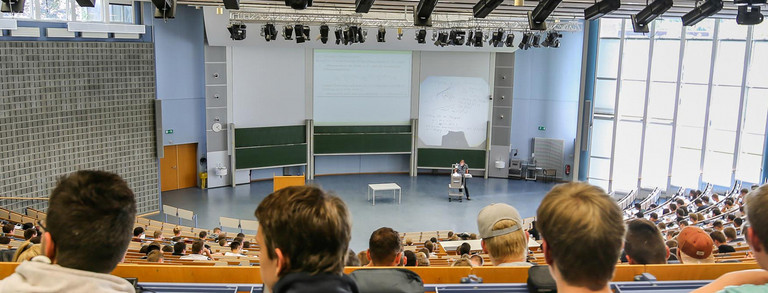Master (1 subject)
Der Studiengang Wirtschaft-Politik soll zukünftige Lehrerinnen und Lehrer dazu befähigen, ihren Schülerinnen und Schüler die grundlegenden Zusammenhänge zwischen politischen, sozialen und ökonomischen Themenkomplexen in systematischer Form zu vermitteln.
to the degree program Wirtschaft-Politik (SP) (Bachelor of Arts (B.A.) für Lehramt)
Important facts about Master's programs (1-subject)
- The master's degree is the second qualifying university degree. As a rule, a bachelor's degree has already been successfully completed in advance.
- The standard period of study in the Master's program is at least one and at most two years.
- Depending on the course of study, TU Dortmund University awards the degrees Master of Science (M.Sc.) and Master of Arts (M.A.).
- Within the scope of the 1-subject Master's degree, you will study one course of study.
- The Master's degree enables you to pursue a doctorate.





![[Translate to English:] Partner Four hands are holding the green logo of TU Dortmund University](/storages/tu_website/_processed_/1/d/csm_Partner_Nicole_Rechmann_KW_670eba0154.jpg)




![[Translate to English:] Forschung An apparatus with tubes in a laboratory](/storages/tu_website/_processed_/0/c/csm_Forschung_Juergen_Huhn_4fa3153b51.jpg)
![[Translate to English:] Studium Five students are sitting in a lecture hall. They are talking to each other.](/storages/tu_website/_processed_/c/9/csm_Studium_FelixSchmale_dbdbfb0dd7.jpg)





